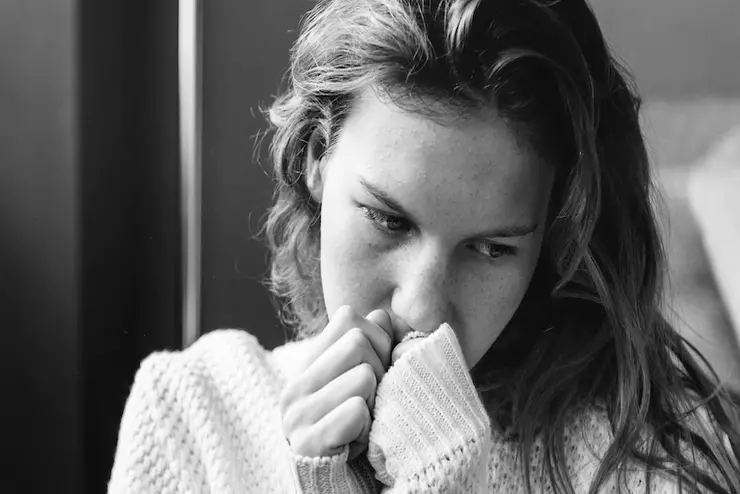Bipolar disorder can make it difficult for a person to carry out daily activities properly and can harm both personal and professional relationships.
What causes bipolar disorder?
It is still unclear what causes bipolar disorder specifically. Bipolar disorder is known to often begin in adolescence or throughout the teenage years. Most persons with bipolar disorder suffer for a very long time before seeking help because they are ignorant about the disorder.
Hormonal imbalance, genetics, severe trauma brought on by tragic events, drug or alcohol misuse, and others may be risk factors. Other conditions like acute depression with psychosis or schizophrenia can co-occur with bipolar disorder.
What are the symptoms of bipolar disorder?
When they are in their manic or depressive stages, people with bipolar illness have two different sets of symptoms.
Manic phase: During manic phases, a person acts impulsively, makes poor judgmental choices, and takes exceptional risks. Additionally, the person disregards or is ignorant of any unfavorable effects of their unanticipated activities.
– Extreme joy with the thought that nothing, not even terrible news or sad circumstances, can alter the situation strong irritation or a sudden wrath.
– Possess strong views without a rational foundation or very ambitious fantasies. The individual can assert that he or she has a unique bond with God, famous people, or figures from the past.
– Unrealistic expectations about one’s capacity. For instance, they can believe that nothing can stop them from completing a challenging assignment.
– Inability to control impulsive behaviors and risky actions including overspending on unnecessary items, making bad business decisions, driving carelessly, or engaging in extreme sexual conduct.
– Running incessantly in the mind are uncontrollable ideas.
– Lack of sleep, which can lead to agitation and hyperactivity.
– Having trouble focusing and being unable to perform typical activities.
– Being frustrated and unpleasant most of the time during the day
– Speech that is spoken quickly, jumps from one notion to another, and lacks coherence of thought.
– A loss of perspective that may result in psychosis (hallucinations – seeing or hearing things that are not there).
– Excessive self-confidence and unfounded confidence in one’s talents.
– Cleaning or organizing things, playing the same music for days on end, or attempting to dominate or control others are all examples of obsessive-compulsive behavior.
Phase of depression: A person going through a depressive phase could go through the following:
– Extreme sadness or despair
– A sense of helplessness
– Lack of enthusiasm for activities they used to like
– Energy decline, a propensity to get fatigued and unmotivated easily
– Having trouble falling asleep; sleeping excessively or not at all
– A change in appetite, difficulty eating well, and a considerable loss of weight without dieting
– Difficulty paying attention, recalling details, or making decisions
– Suicidal, self-destructive, or death thoughts
If you notice any of these signs in a person you know, you can encourage them to get help from a mental health professional.
How does my provider diagnose bipolar disorder?
Due to the similarities in symptoms, bipolar illness is sometimes mistaken for schizophrenia or depression. The most common sign of bipolar disorder is abnormal mood elevation (mania or hypomania).
Dr. Aman examines your medical background, lifestyle choices, and symptoms to determine whether you have bipolar illness and whether you need treatment. He completes a thorough psychiatric evaluation. Before creating a unique mental health treatment for you, he will ask about your past, including your thought patterns, mood, habits, and emotions. A medical examination and labs can be required.
How is bipolar disorder treated?
To reduce troublesome symptoms of bipolar disorder, Dr. Aman may recommend lifestyle changes, therapy, or medication management.
Lifestyle changes:
Consistently get enough sleep, manage your stress, exercise frequently, consume healthy meals, and abstain from drugs, alcohol, and smoking.
Therapy:
Reducing the symptoms of bipolar disorder can also be accomplished by psychotherapy (talk therapy). He provides treatments that alter thoughts and behavior patterns.
Medication management:
In order to treat bipolar disorder and stabilize your mood, taking drugs is a highly beneficial technique.
Coping with bipolar disorder
Every part of your child’s life may be impacted by bipolar disorder. You can manage your child’s bipolar disorder by acknowledging that they have it and learning as much as you can about it.
You can help your child by:
– Adhere to the treatment recommended by the mental health specialist.
– Regularly visit the doctor and take your medications
– Maintain a healthy lifestyle by watching your diet and getting enough sleep each night.
– Be conscious of your mental state and recognize any circumstances or occurrences that can bring on the symptoms.
– Recognize and value the assistance of caregivers (family members and friends).
– Join a support group to meet others who are going through the same thing. These encounters will help you stay motivated and improve your ability to manage the disease.
To find out if your child has bipolar disorder and get treated for it, call the Brightstar Psychiatry office.








